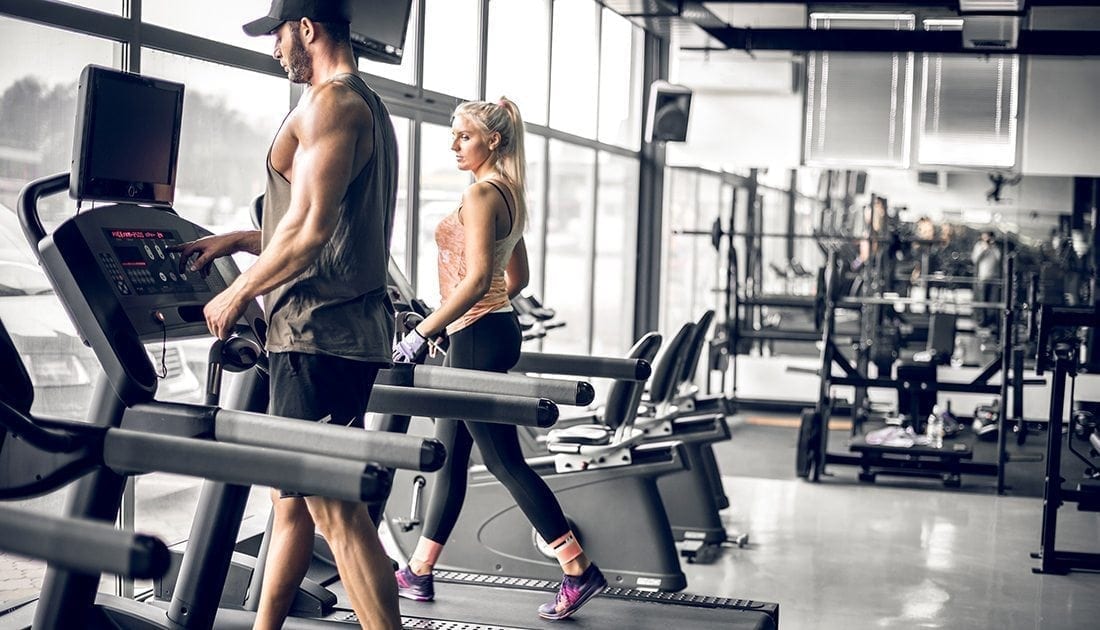There is an endless debate going around the fitness community about which form of cardiovascular training is superior - High Intensity Interval Training (HIIT) or Low Intensity Steady State (LISS). Proponents on both sides of the aisle aggressively defend their style of cardio as the best.
We’re here to explain the differences between the two, and which form you should be using to maximize your gains in the gym.
Low Intensity Steady State (LISS)
Low Intensity Steady State (LISS) is a low-intensity cardio workout usually calling for 30 to 60 minutes of exercising at approximately 60% of your maximum heart rate, a.k.a. Your “fat burning” zone. Advocates of LISS promote the idea that training in this manner promotes greater fat burning, increases blood flow and oxygen delivery to muscles, and accelerates recovery.
The advantages of LISS is that it’s safer for out of shape trainees and comes with less strain on your joints, ligaments and connective tissue, and therefore a lower risk of injury. Additionally, LISS is easy to do basically anywhere. You can go walking, jogging, cycling, swimming or if you’re at the gym, you can use the treadmill, elliptical or stationary bike.
The downsides to LISS is that it’s incredibly time-consuming and something your body adapts to overtime, meaning that in order to get the same calorie burn from it, you’ll have to eventually increase the amount of LISS that you do. Plus, when dieting, LISS is more catabolic as opposed to high intensity interval training
High Intensity Interval Training (HIIT)
High Intensity Interval Training (HIIT) is a more demanding form of cardio training that alternates between periods of all-out maximum effort and low-to-moderate effort. Maximum effort intervals generally fall between 10-45 seconds, while the low-to-moderate “rest” intervals last between 30-60 seconds. These rest periods allow for complete replenishment of the Adenosine Triphosphate-Creatine Phosphate (ATP-CP) system.
The advantages to HIIT is that it’s incredibly time-efficient and great for not only stimulating muscle fibers in a similar manner as to that of weightlifting, but also enhances muscle building and preserves muscle better during periods of dieting. Compared to LISS, you’ll experience a greater metabolic boost for longer periods of time and burn a lot of calories for very little time.
The disadvantages to HIIT is that you cannot perform it every day like LISS. It’s simply too taxing to your body and CNS and can inhibit recovery and muscle-building if done too often. Moreover, not everyone is in good enough physical or cardiovascular condition to handle HIIT and there’s a greater risk of injury too., by doing high intensity work you are activating muscle fibers and anytime you activate muscle fibers you are primed for growth
Which Form is Superior?
Generally speaking, there isn’t one “best” form of cardio for all populations. Both have their place in a proper muscle-building, fat-shredding training program. HIIT is superior for fat loss and muscle retention during dieting and saves a lot of time. LISS is a great “alternative” to use in between resistance training sessions and HIIT session to still get some extra calorie burn without impairing CNS and muscle recovery. Plus, it’s also good from increasing blood flow to previously worked muscles and is an ideal form of “active recovery” to be used on rest days.
In the end, a combination of both HIIT and LISS can be used to promote body re-composition. How you blend the two ultimately boils down to your individual training and recovery capacity as well as your nutrition and performance / physique goals.

